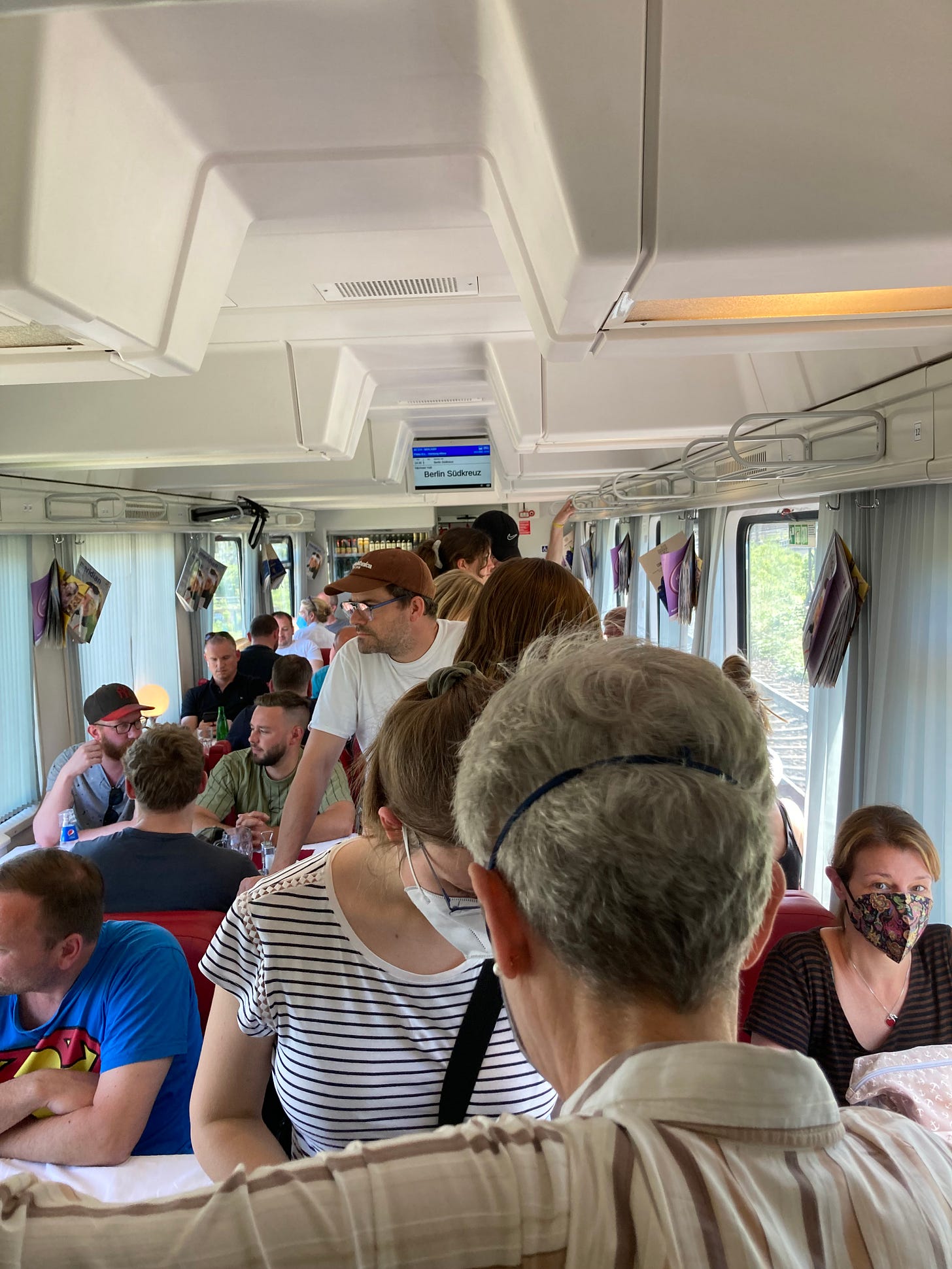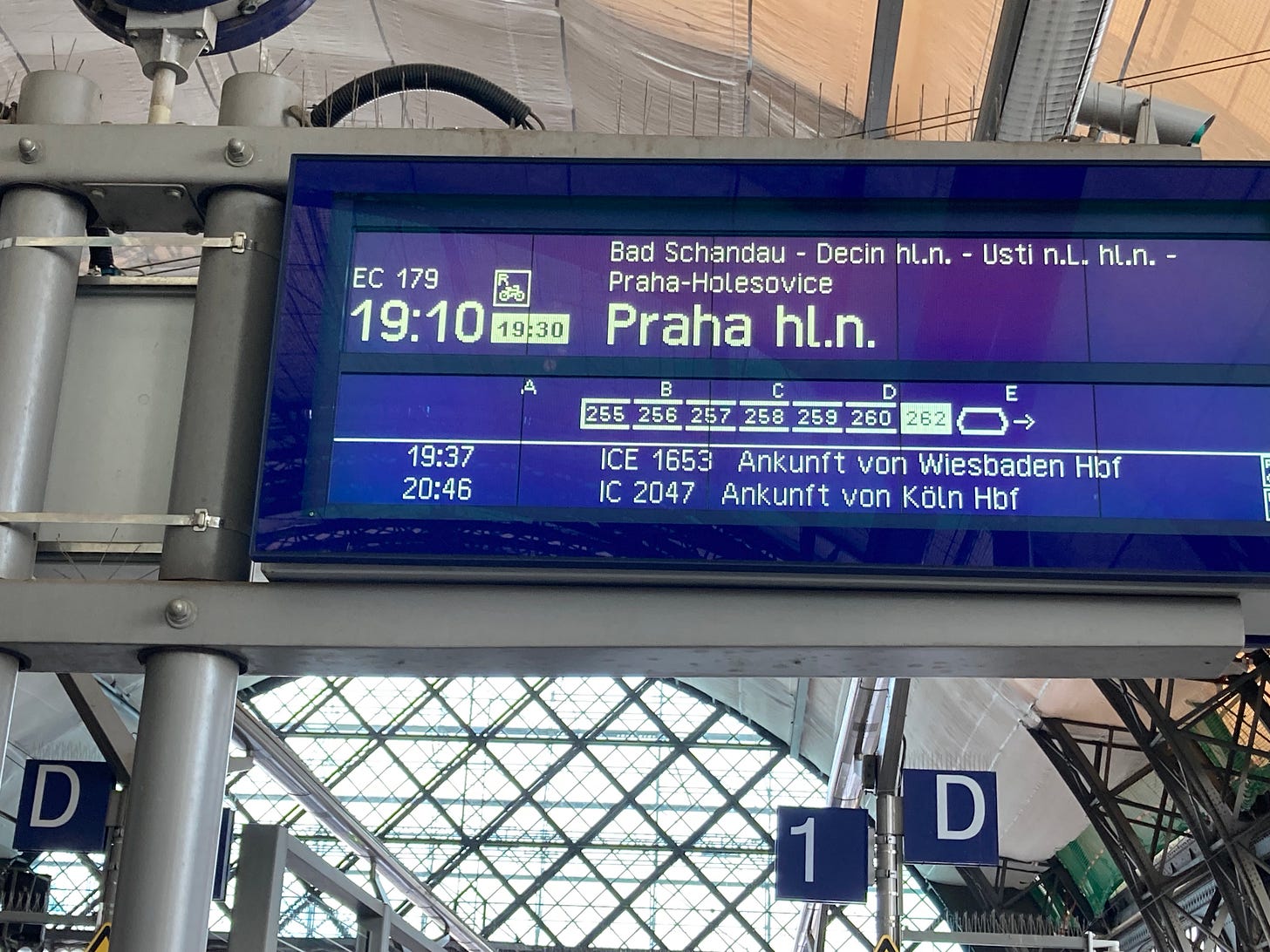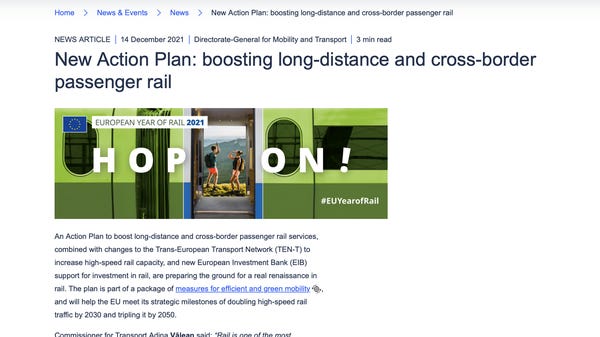Why vote in EU elections?
The sad truth is that the majority of people, especially in the Czech Republic, do not vote in these elections. If they do, they often simply vote for representatives of the party they would vote for in a national election. They may feel it is important to vote and thus support democracy, but they find it difficult to vote on the basis of specific 'European' issues that affect them. People often vote differently in local elections than they would in a national election because there are often very specific local issues that are taken up by individuals or small parties standing as independents. In contrast, the EU Parliament seems distant and irrelevant to everyday life.
However, I would like to suggest that there is one issue that you may be very concerned about and that the EU could and should be doing more about. And that is the improvement of our railways.
Ever since I was able to vote for the first time in Britain, I have felt that transport should be an important part of the political agenda and should influence the final choice of a voter. I was always puzzled that few others seemed to agree with me; everyone complained daily and loudly about their transport problems, yet opinion polls in the run-up to national elections in Britain always put transport well down the list of priorities that would influence voters' choices. I often think that people get the transport systems they deserve. But the shining exception is Switzerland, where long-term national plans for the transport system, involving huge long-term investment, are put forward and approved by the Swiss people in referendums, meaning that projects cannot be cancelled or tampered with by an existing or incoming government looking for money to spend elsewhere.
So the EU elections are an opportunity to express your desire for a better transport system by voting for the party most likely to actually support your wishes in Brussels. But what exactly can we expect the EU to do to improve our transport systems, especially our rail systems?
1. The EU can and should help finance investment. In general, major improvements to railways cost more and take longer to build than improvements to roads. However, improvements to the railways, especially their infrastructure, are felt for much longer; most of the railways you travel on across Europe are essentially at least 100 years old. The EU stands for the free movement of people and goods across the continent, so it should stand for helping to build the best transport links in every Member State.
2. The EU should help Member States to shift more traffic to rail. The EU agrees that all Member States should work together to reduce harmful emissions from transport, and it is now widely recognised that travelling by rail produces far fewer emissions than travelling by road (whether by car, bus or lorry). It follows that the EU should do all it can to help Member States improve their national rail systems so that people and freight can switch from road and air to rail.
3. The EU should enforce improvements in cross-border rail services. The EU's single market often creates agreements and even enforcement measures at European level to ensure that certain markets and services work effectively across borders. This can be seen to work well in consumer goods markets, and is starting to work better, albeit with more difficulty, in banking and financial services. It also works quite well for air travel; but, as I will discuss below, it does not work at all for international rail travel.
As I described in my last blog post, the train journey from Prague to Frankfurt is slower and much less comfortable than it was 30 years ago. One of the reasons for this is that while several EU countries have invested heavily in high-speed trains, they have focused on improving journeys within national borders. 50 years ago, the Trans- Europe Express (TEE) trains were the most prestigious way to travel between major European cities. 30 years ago they were replaced by the more democratic but still prestigious EuroCity trains. The EuroCity trains still exist, but they are seen as slower and less prestigious than the high-speed trains of France, Germany, Italy or Spain. However, these high-speed trains rarely cross borders. Each of these countries has bought trains that are suitable for the national network; sometimes there are technical reasons why they cannot cross the border, but more often the problem is simply that the national railway company is not interested in providing the service.
Rail passengers wishing to travel internationally also face a confusing and intimidating system for buying tickets. You would think that in the EU, with its single market, there would be a single web portal that could find you the best way to get from Prague to Paris and get you the best price for that journey. It does not exist.
Of course, it takes a very long time to get from Prague to Paris by train; why spend nine hours on a train (or, rather, several trains) when the plane can get you there in less than two hours? However, it makes more sense if there is an overnight train with comfortable sleeping accommodation. There were such trains 30 years ago, but they were phased out with the advent of low-cost airlines. One national operator, ÖBB, continued to believe that night trains had a future, even when Deutsche Bahn withdrew night trains to Prague.
ÖBB has been vindicated; more and more people are expressing an interest in taking these trains instead of flying. But ÖBB cannot provide a night train network for the whole of Europe on its own; and it is difficult for others to do so because there are no spare modern sleeping cars available for hire, and national operators are nervous about investing in new sleeping cars for international trains when they may be under pressure to invest in their domestic services. It's a situation ripe for intervention at EU level.
How would my vote help make this happen?
The European Commissioner for Transport is responsible for drawing up such measures, which are then approved by the European Parliament. The current commissioner is a Romanian, Adina Valean. It is hard to find anyone with knowledge of the rail sector who thinks she has done a good job. However, new commissioners will be elected by the new Parliament after the elections. The more MEPs who support and improve the railway system and have some knowledge of what is needed, the more likely it is that a transport commissioner will be elected who is actually effective and committed to the same goals. Then, when the new Commissioner's plans come before Parliament, there will be a greater chance that they will be approved quickly. That's how it works. Of course, it's never that easy to turn a single vote into something that leads to concrete change, but that's true of any election. It costs nothing and takes very little time to use your vote. If you care about a good railway system (and you probably do if you have read this far), why not use your vote in this way?
Then of course, the question arises, how would you vote “for a better railway” in the Czech Republic? That will be the subject of a second blog-post which I will publish soon.Inevitably it will be more controversial, as politics always is, but I will set out the main criteria I have when looking for the best "pro-rail" manifesto, and offer my analysis of each of the main parties' manifestos. Feel free to offer yours below!




